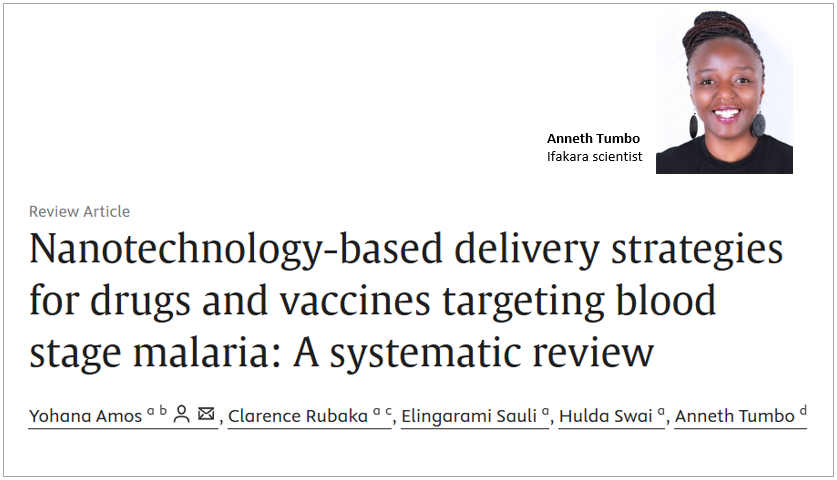
NANOTECHNOLOGY: New hope for malaria treatment and prevention

In a newly published review, Tanzanian scientists highlight the promising role of nanomedicine in improving malaria treatment and prevention. Their analysis points especially to the potential of nanotechnology in treating and preventing blood-stage malaria—the stage when malaria parasites attack red blood cells, causing most of the disease’s symptoms and complications.
The review was co-authored by researchers from the Nelson Mandela African Institution of Science and Technology (NM-AIST), University of Dar es Salaam (UDSM), St John's University of Tanzania, including Anneth Tumbo of the Ifakara Health Institute. The team analyzed 40 studies conducted between 2005 and 2025 to examine how nanoparticles could enhance the effectiveness of malaria drugs and vaccines.
What is nanotechnology?
Nanotechnology involves designing and using extremely small particles—known as nanoparticles—that are measured in nanometers, or billionths of a meter. These particles are so tiny that they can move inside the body in ways ordinary drugs cannot.
In medicine, nanotechnology allows drugs or vaccine components to be packaged and delivered more precisely to the parts of the body where they are needed most. This means fewer side effects, better drug absorption, and more targeted treatment.
Nanoparticles as drug carriers and in vaccine development
In the case of malaria, nanoparticles can be engineered to specifically target malaria-infected cells, ensuring that treatment reaches the parasite without harming healthy cells. This targeted approach could reduce side effects and improve how long drugs stay active in the body.
Beyond treatment, nanoparticles can also be used to deliver malaria vaccine antigens in a way that strengthens the immune response. This may allow for more effective immunity—with fewer doses needed.
Why this matter
Malaria remains one of the deadliest diseases, particularly in Sub-Saharan Africa, where children under five are most vulnerable. In 2023 alone, more than 263 million malaria cases were recorded globally, with Africa accounting for 94% of infections and nearly all malaria-related deaths.
While treatments such as artemisinin-based combination therapies (ACTs) are widely used, they are increasingly challenged by drug resistance, toxicity, and short-lived effectiveness. Similarly, malaria vaccines such as RTS,S/AS01 offer only partial protection and require multiple doses—making implementation difficult in high-risk areas.
How nanotechnology could help
The review, published in Nanomedicine in October 2025, shows that nanoparticle-based delivery systems could help address these gaps.
According to the authors, “targeting infected red blood cells significantly enhanced drug efficacy and reduced systemic toxicity.” The review also notes that “nanoparticles used as antigen carriers elicited strong immune responses, achieving up to 83.3% survival in pre-clinical models.”
These findings suggest that nanotechnology could make both drugs and vaccines more precise, more effective, and safer than conventional methods.
Barriers to real-world use
Despite the promise, the researchers caution that significant challenges remain. “Scalable production, clinical translation, and regulatory approval persist as key barriers that need to be addressed before these solutions can reach patients,” the researchers noted.
The way forward
Nevertheless, the scientists conclude that “nanocarriers enhance drug delivery, target Plasmodium-infected red blood cells, reduce off-target toxicity, and improve vaccine immunogenicity.”
They emphasize that nanotechnology could play a transformative role in future malaria treatment and prevention efforts—offering new hope in the fight against a disease that continues to claim hundreds of thousands of lives each year.
Ifakara contributes to the review
Anneth Tumbo of the Ifakara Health Institute served as the senior last author on the review, which was co-authored in collaboration with researchers from the Nelson Mandela African Institution of Science and Technology (NM-AIST), the University of Dar es Salaam, and St John’s University of Tanzania.
Read more, here.
